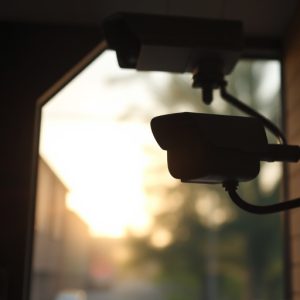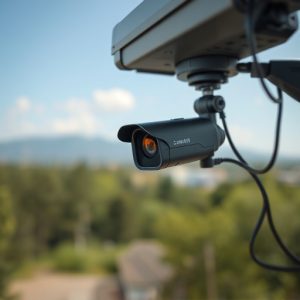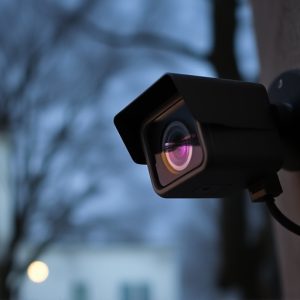Legal Guide: Implementing Safe Surveillance for Home Daycares with Nanny Cameras
Setting up surveillance in daycare centers requires understanding and adhering to strict privacy law…….
Setting up surveillance in daycare centers requires understanding and adhering to strict privacy laws regarding Legal Nanny Cameras. These cameras offer safety benefits, enabling remote monitoring and providing insights into care quality. Both wireless and wired options are available, each with its advantages. Implementing such systems demands transparency, consent, strategic camera placement, and regular policy reviews to maintain a safe, legal, and ethical environment while respecting children's privacy.
“In today’s world, ensuring safety in residential daycares is paramount. This comprehensive guide explores the intricacies of surveillance device sweeps, with a focus on legal nanny cameras for daycare settings. We delve into understanding and adhering to relevant laws, highlighting the benefits of these devices for enhanced child care. From types and features to ethical considerations, this article equips parents and caregivers with insights to implement safe, responsible surveillance systems while prioritizing privacy.”
- Understanding Legal Requirements for Nanny Cameras in Daycare Settings
- Benefits of Surveillance Devices for Residential Child Care
- Types of Legal Nanny Cameras and Their Features
- Implementing a Safe and Ethical Surveillance System
- Privacy Considerations and Best Practices for Home Daycares
Understanding Legal Requirements for Nanny Cameras in Daycare Settings
When setting up surveillance devices, especially in daycare settings, it’s crucial to understand and adhere to legal requirements regarding the use of legal nanny cameras for daycare. The privacy laws governing these spaces are stringent due to the sensitive nature of child care. Many regions have strict rules about video monitoring, particularly involving minors.
Before installing any camera system, daycare owners and operators must familiarize themselves with local, state, or federal regulations. These laws dictate where cameras can be placed, who has access to the footage, and for how long recordings can be stored. Ensuring compliance is not only a legal requirement but also fosters trust between parents and caregivers, as it demonstrates respect for privacy rights while prioritizing child safety.
Benefits of Surveillance Devices for Residential Child Care
Surveillance devices, particularly legal nanny cameras for daycare, offer significant benefits in the realm of residential child care. These tools enable caregivers to maintain a safe and nurturing environment by remotely monitoring activities, ensuring the well-being of children under their supervision. With legal nanny cameras, parents can rest assured that their children are receiving quality care, even when they’re away from home.
In addition to enhancing safety, these devices provide valuable insights into a child’s daily routine. Caregivers can review footage to assess interactions, identify potential issues or concerns, and make informed adjustments to their care plans. This proactive approach not only benefits the children but also fosters transparency and trust between caregivers and parents.
Types of Legal Nanny Cameras and Their Features
Legal Nanny Cameras for Daycare come in various types, each with unique features catering to different surveillance needs. Wireless cameras offer convenience and flexibility, allowing easy placement and retrieval of footage via a mobile app. These are ideal for monitoring activities throughout a residential property, ensuring the safety and well-being of children under care.
On the other hand, wired Nanny Cameras provide consistent, high-quality video streaming without the potential interruptions associated with wireless signals. They are typically more robust and secure, making them suitable for critical monitoring situations where constant surveillance is essential. Both types comply with legal requirements for privacy and consent, ensuring their use in childcare settings remains ethical and lawful.
Implementing a Safe and Ethical Surveillance System
Implementing a surveillance system, particularly in residential settings or daycares, requires a delicate balance between safety and ethical considerations. When setting up Legal Nanny Cameras for Daycare operations, it’s crucial to ensure that all parties are aware of and comfortable with the presence of cameras. Transparency is key; inform parents, guardians, and employees about the purpose and location of surveillance devices.
Adhering to privacy laws and regulations is essential. This includes obtaining necessary consent and ensuring only authorized personnel have access to recorded footage. Position cameras strategically, focusing on common areas where supervision is critical, while respecting personal spaces. Regularly review and update surveillance policies to maintain a safe, ethical, and legal environment for all involved.
Privacy Considerations and Best Practices for Home Daycares
When setting up a home daycare, balancing safety and privacy is paramount. While Legal Nanny Cameras for Daycare can be essential tools to monitor children’s activities and ensure their well-being, it’s crucial to address privacy considerations to create a secure environment for both the children and the caregivers.
Best practices involve strategically placing cameras in common areas only, with clear visibility for supervision while respecting personal spaces. Ensure all parents are informed about the surveillance system, its limitations, and access to footage. Regular reviews of camera positions and data storage protocols can help maintain a balance between safety measures and individual privacy rights.
When it comes to residential child care, implementing Legal Nanny Cameras for daycare can provide a sense of security and peace of mind for parents. Understanding the legal requirements and privacy considerations is essential to ensure a safe and ethical surveillance system. By choosing the right types of cameras with features that cater to your specific needs, you can create an environment where both children and caregivers are protected. Remember to always follow best practices for privacy preservation to maintain trust and foster a positive atmosphere in your home daycare.


